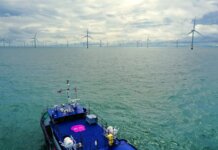The American Council on Renewable Energy (ACORE) has launched a new campaign that aims to reach a whopping $1 trillion in new U.S. private-sector investment in renewable energy and enabling grid technologies by 2030.
ACORE is a national business group made up of companies that finance, develop, manufacture and use all forms of renewable energy. The new campaign is managed through the Partnership for Renewable Energy Finance (PREF), a senior-level ACORE member program serving as an educational resource on renewable energy finance.
Through the new “$1T 2030: The American Renewable Investment Goal,” the country’s major providers of capital for energy infrastructure projects have come together in a coordinated effort to accelerate the investment and deployment of renewable power as the sector moves to the next stage of market maturity, explains ACORE.
To reach the “ambitious but achievable” goal of $1 trillion in domestic renewables investment by 2030, ACORE has released a combined set of common-sense policy reforms and distinct market drivers that it believes are most essential for growth. As part of the $1T 2030 campaign, ACORE will be engaging with business and government stakeholders, releasing new reports, hosting events, and taking other steps in support of the objective.
During opening remarks at the 15th annual Renewable Energy Finance Forum-Wall Street, Gregory Wetstone, ACORE’s president and CEO, said, “Renewable energy has come a long way and is economically competitive, but if we accept business-as-usual projections that predict a decline in annual investment and deployment levels in just a few years due to an uneven policy playing field, we will cede U.S. leadership and the immense range of economic benefits that come from being a dominant player in this booming global industry. With the $1T 2030 campaign, the investment community is charting a course to modernize America’s energy infrastructure that will create massive economic opportunities over the next decade and beyond.”
The $1 trillion investment from 2018 to 2030 projected by ACORE is anticipated to be roughly split between direct private investment in renewable energy and investment in grid technologies, such as energy storage.
If the campaign reaches its goal, the U.S. will close the innovation and investment gap with other nations; build on the impressive track record of job creation in wind, solar and related fields; and stay within striking distance of the U.S. commitment for greenhouse-gas emission reductions outlined in the Paris Accord, says ACORE.
According to ACORE, $1T 2030 is founded from a range of insights drawn from a new survey of investors gauging confidence in the U.S. renewable sector and the impacts of supportive policy reforms and market drivers. ACORE’s survey, which took place in April, collected data and insights from senior-level respondents across U.S. banking institutions, asset managers, private equity firms and other financial firms.
Survey respondents reported that with sustained demand, U.S. renewable energy will continue to be an attractive asset class with strong potential for investment growth. Market developments and policy changes over the coming decade will drive new demand for renewable energy, but investors are cautious about potential mixed policy signals, which could slow demand.
The full survey report can be found here.




